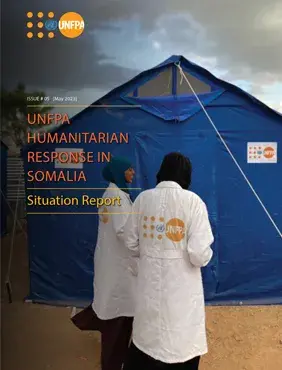The Somali population continues to endure numerous challenges, including climatic shocks, conflict, flash and riverine floods, and armed conflict. Among the most affected groups are displaced and vulnerable women and girls across the country. The Somalia 2023 Humanitarian Needs Overview (HNO) analysis reveals that over half of the estimated population, amounting to 8.25 million individuals, require critical humanitarian and protection assistance.
Vulnerable women and girls in displaced camps face multiple threats due to displacement and inadequate access to water and health services. Recent flooding incidents in Baletweyne have heightened concerns about waterborne diseases such as diarrhea, while also increasing the risks of gender-based violence (GBV). Additionally, ongoing displacements are predicted to persist in hotspot areas along the Juba and Shabelle rivers, as well as in parts of the Bay and Banadir Regions, with localized flooding anticipated in Galmudug, Puntland, and Somaliland.
UNFPA is providing life-saving sexual and reproductive health (SRH) services and GBV response among conflict-affected populations in Las’anod. This includes support for 11 Emergency Obstetric and Newborn Care (EmONC) facilities, with eight located in the Sool region (including Falayeryaal, Awrbogays, Saah-Dheer, Las’anod, Xalin, Las’anod, and Hudun) and three in Garowe. These facilities operate around the clock to cater to the needs of women, girls, and children affected by the conflict.
In addition, UNFPA is actively strengthening the capacity of its partners to deliver SRH services and responding to GBV, and meet the growing demands. Health facilities and mobile clinics play a vital role in providing support for maternal and newborn health, birth-spacing options, and the Clinical Management of Rape (CMR). Furthermore, safe spaces designed for women, girls, and young people, as well as one-stop centers, offer mental health and psychosocial support services for survivors of GBV.


